Best AI tools for< Populate Databases >
7 - AI tool Sites
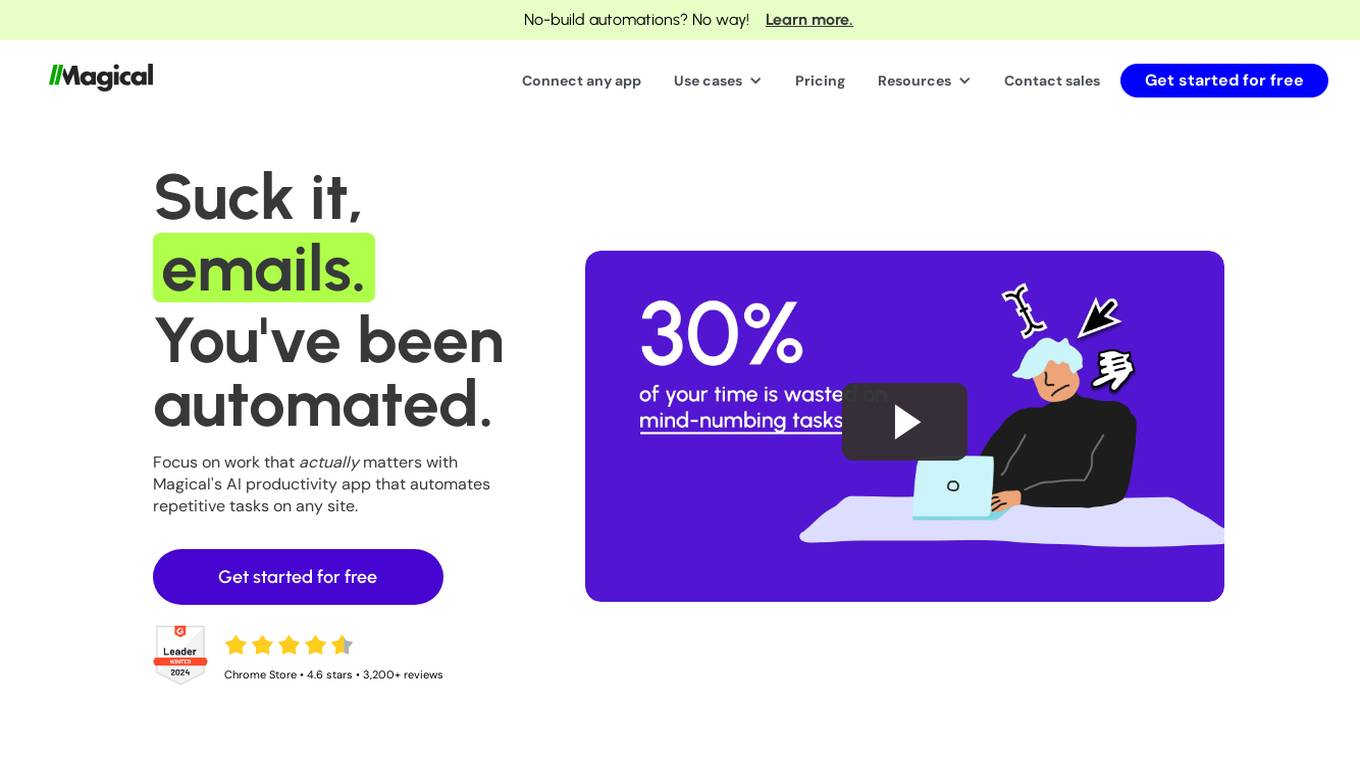
Magical
Magical is an AI productivity application that automates repetitive tasks on any website, allowing users to focus on more important work. It offers features like text expansion, autofill, website scraping, AI email writing, and auto form filling. The application is designed to save time and increase efficiency for various tasks across different industries such as recruiting, sales, customer support, and healthcare. Magical is loved by teams and individuals for its ability to personalize messages, overcome writer's block, and automate data entry and research tasks.

Magical
Magical is an AI-powered productivity app that automates repetitive tasks on any website. It offers a range of features including text expansion, autofill, data entry and research, and AI-powered writing assistance. Magical is designed to help users save time and focus on more important work.
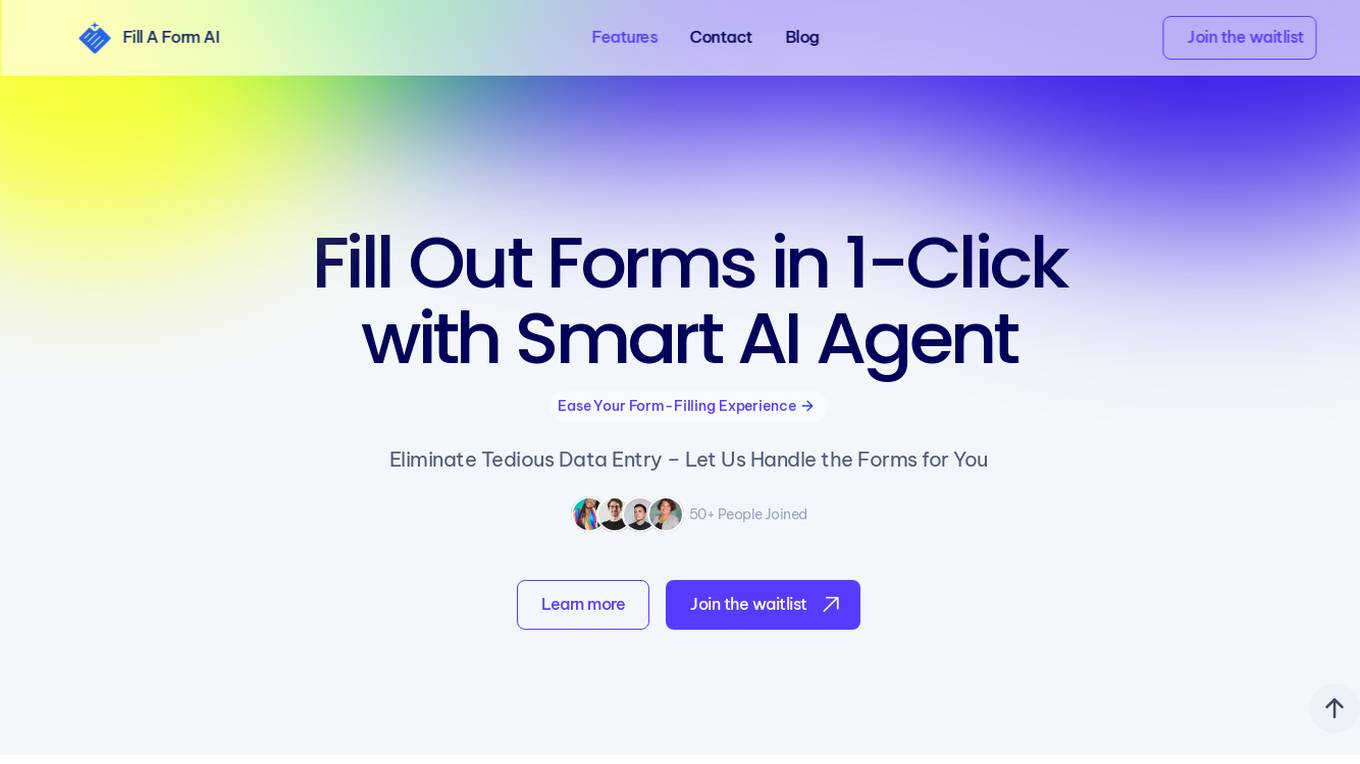
Fill A Form AI
Fill A Form AI is an innovative tool designed to streamline the form-filling process by leveraging artificial intelligence technology. It offers a one-click solution for filling out forms quickly and efficiently, eliminating the need for tedious data entry tasks. The tool learns from past filled forms, efficiently finds answers from data, and provides powerful features tailored to users' needs. With features like auto-detect form fields, auto-fill from history, and smart collaboration, Fill A Form AI aims to ease users' form-filling experience and save time and effort.
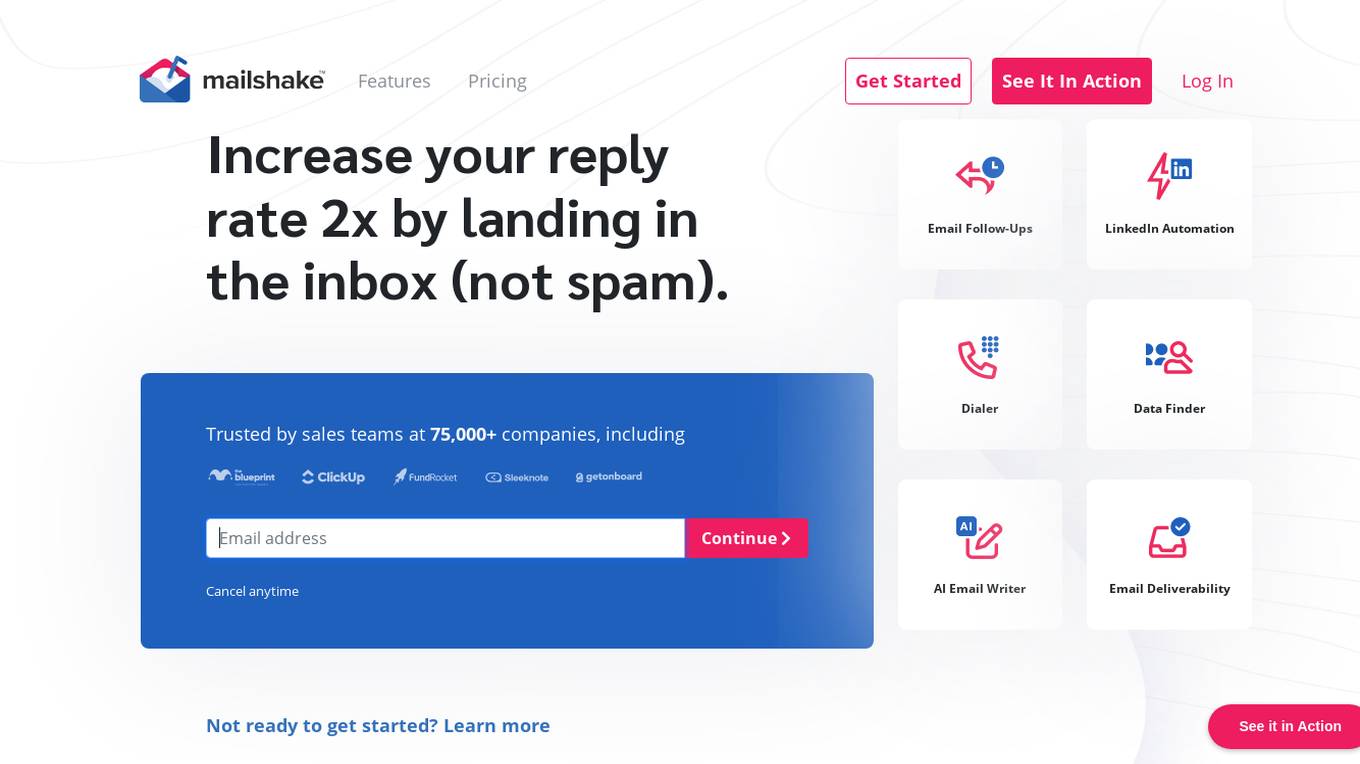
Mailshake
Mailshake is an AI-powered sales engagement and B2B lead platform that offers a comprehensive set of features to streamline outreach campaigns. It allows users to easily populate their CRM with leads, find prospect emails, automate email writing, ensure email deliverability, send personalized emails at scale, and more. With a focus on increasing response rates, generating more sales, and optimizing outreach efforts, Mailshake is trusted by sales teams at over 75,000 companies.
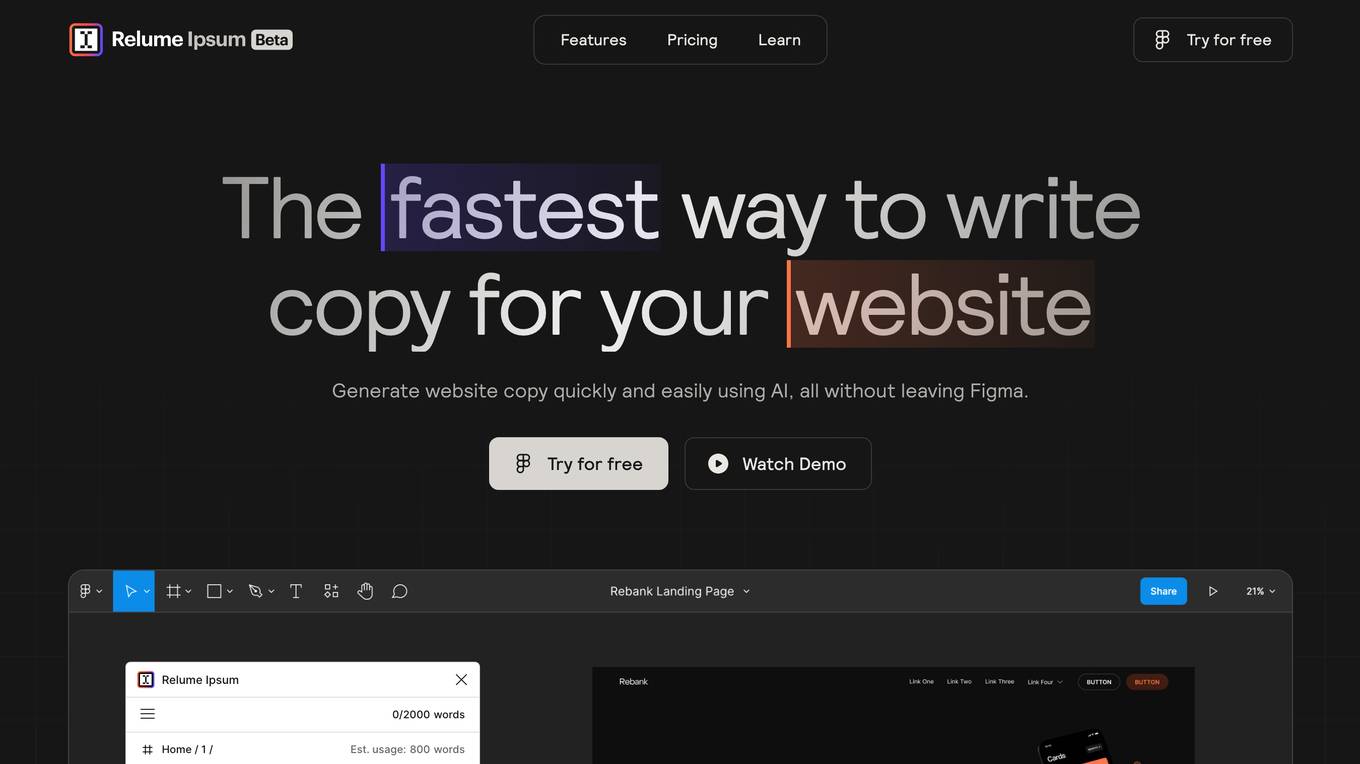
Relume Ipsum
Relume Ipsum is an AI-powered copywriting tool designed to help designers and developers quickly generate realistic website copy. It uses advanced language models to create unique and engaging content based on a brief company description. With Relume Ipsum, users can populate website wireframes with high-quality copy without the need for hiring a copywriter. It offers a range of features to enhance the copywriting process, including the ability to lock certain elements to prevent overwriting, provide feedback to the AI, and generate copy in different styles and tones. Relume Ipsum is suitable for businesses of all sizes and can be used to create website copy for a variety of purposes, including e-commerce, blogs, and corporate websites.

Viddyoze
Viddyoze is a powerful video creation software that empowers users to create professional-looking videos for their businesses or brands in minutes. With its extensive library of pre-built video templates, users can choose from a variety of options to achieve their desired goals, such as lead generation, Facebook ads, and brand awareness. Viddyoze also provides exclusive training courses and learning materials to help users build effective video marketing strategies. Additionally, users can access a brand library to add their own branding elements, auto-populate templates, and integrate TrustPilot reviews into their videos.
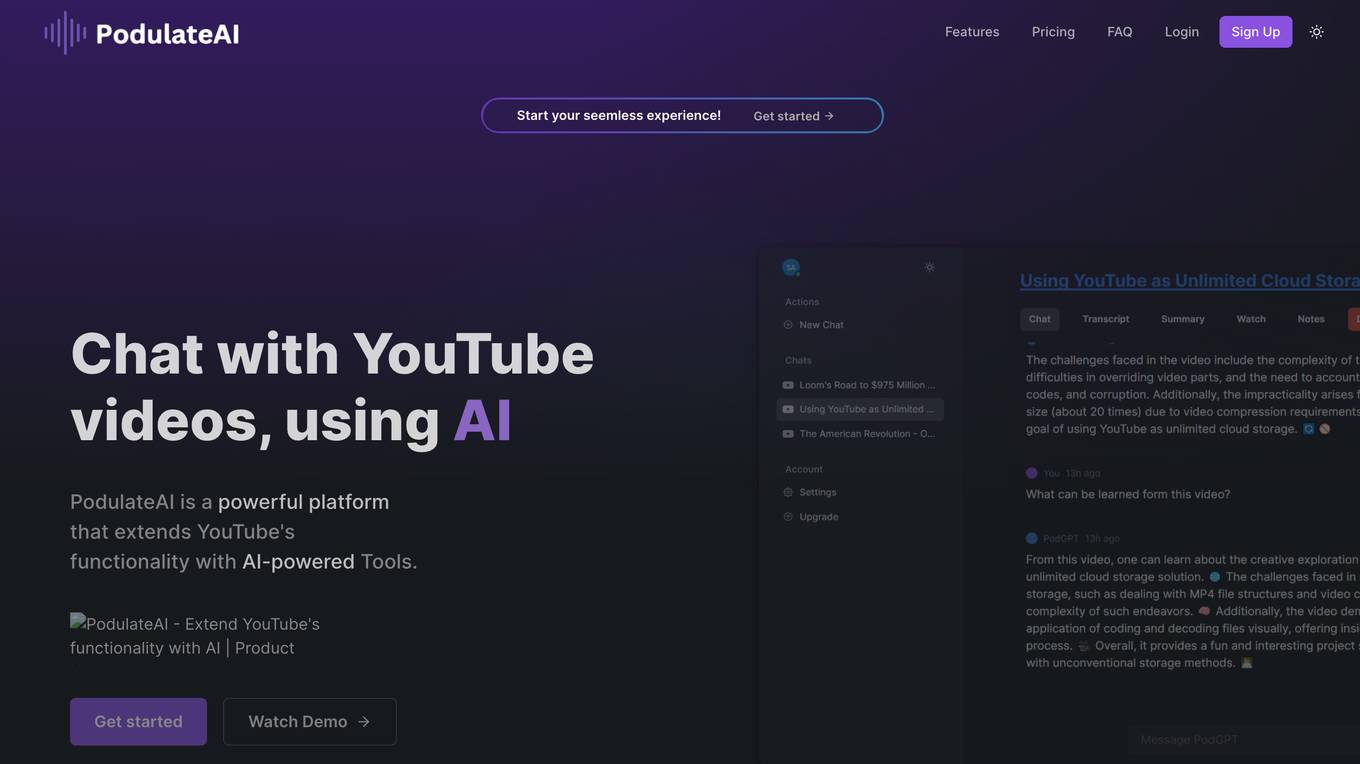
PodulateAI
PodulateAI is an AI-powered platform that enhances YouTube's capabilities by providing tools for interacting with videos using AI technology. Users can chat with YouTube videos, generate quizzes, get summaries, translations, transcriptions, and take notes while watching. The platform is designed to be user-friendly and offers both free and paid plans with unique features like text-to-speech, note-taking, and seamless integration with OpenAI's API.
0 - Open Source AI Tools
3 - OpenAI Gpts
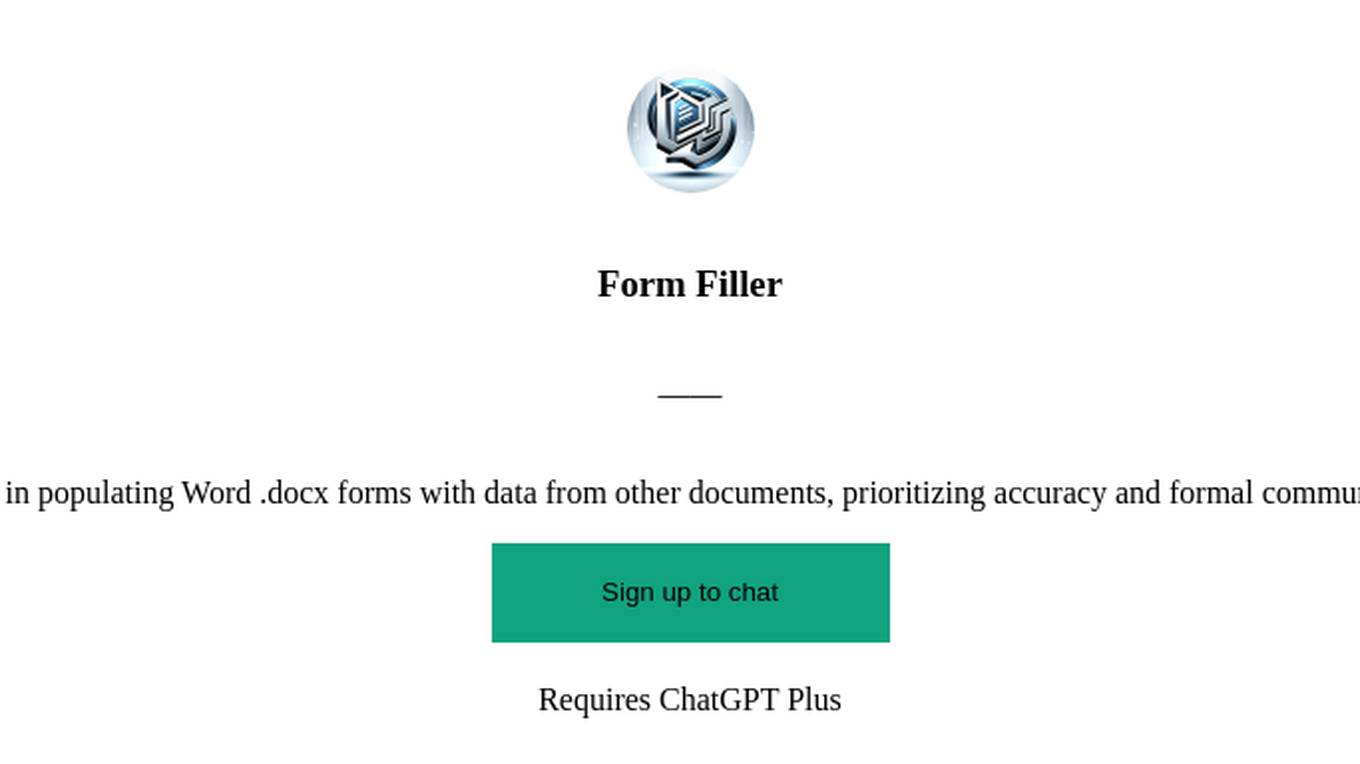
Form Filler
Expert in populating Word .docx forms with data from other documents, prioritizing accuracy and formal communication.

INSIGHT Business SIM
The future of business education: Generate and test ideas in a complex global market simulation, populated by autonomous agents. Powered by the MANNS engine for unparalleled entity autonomy and simulated market forces
